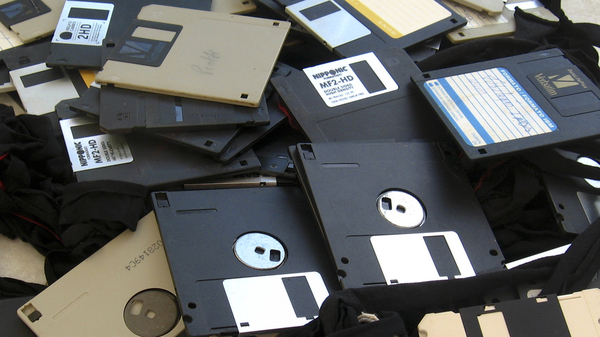
Digital Forensics for Archivists: Advanced

Registration Fee: Early-Bird / Regular
Society of American Archivists (SAA) Member: $299 / $369
Employee of SAA Member Institution: $359 / $449
Nonmember: $419 / $529
Description:
Are you starting to receive disks as parts of collections or have you discovered disks in boxes of paper records? Caring for the records stored on removable storage media (e.g., floppy disks, hard drives, thumb drives, memory sticks, and CDs) requires archivists to extract whatever useful information resides on the medium while avoiding the accidental alteration of data or metadata. In this course, you’ll learn how to apply existing digital forensics methods and tools in order to recover, preserve, and ultimately provide access to born-digital records. We’ll explore the layers of hardware and software that allow bitstreams on digital media to be read as files, the roles and relationships of these layers, and tools and techniques for ensuring the completeness and evidential value of data. We’ll apply digital forensics tools and methods to test data in order to illustrate how and why they are used.
Digital Forensics for Archivists: Fundamentals is specifically designed as a precursor and prerequisite to the two-day Digital Forensics for Archivists: Advanced DAS course.
Note: This course includes exercises with open-source tools in the BitCurator environment. BitCurator is distributed both as a virtual machine and as an installable ISO image.
Students must be prepared to bring a laptop to the course with the following software already installed. (All software programs are free.) iPads and other tablet devices will NOT be able to perform the hands-on tasks, as these devices do not have adequate resources or allow the level of user control required to run the associated software.
Follow the appropriate downloads for your environment at https://www2.archivists.org/prof-education/course-catalog/digital-forensics-for-archivists-advanced
Upon completion of this course you’ll be able to:
- Explain the roles and relationships between the main layers of technology required to read a string of bits off of a physical storage medium and treat it as a file
- Identify various forms of data that may be "hidden" on the physical storage medium
- Use write blockers and create disk images in order to prevent accidental manipulation of volatile data
- Identify and extract the data that a file system uses to manage files
- Apply digital forensics tools and methods to collections of records
- Identify and compare alternative strategies for providing public access to data from disk images
Who should attend?
Archivists, manuscript curators, librarians, and others who are responsible for acquiring or transferring collections of digital materials, particularly those that are received on removable media
What should you know already?
Participants are expected to know basic archival practice and have intermediate knowledge of computers and digital records management.
This course builds on others in the Digital Archives Specialist (DAS) curriculum, including Basics of Managing Digital Records, Digital Records—The Next Step, Thinking Digital, Accessioning and Ingest of Digital Records, and Metadata Overview for Archivists.
DAS Core Competency:
- #1. Explain the nature of digital records and their lifecycle.
- #3. Formulate strategies and tactics for appraising, acquiring, describing, managing, organizing, preserving, and delivering digital archives.
- #4. Incorporate technologies throughout the archival lifecycle.
- #6. Employ standards and best practices in the management of digital archives.
- #7. Design a defined set of services for designated community.
If you intend to pursue the DAS Certificate, you will need to pass the examination for this course.
Attendance is limited to 35.